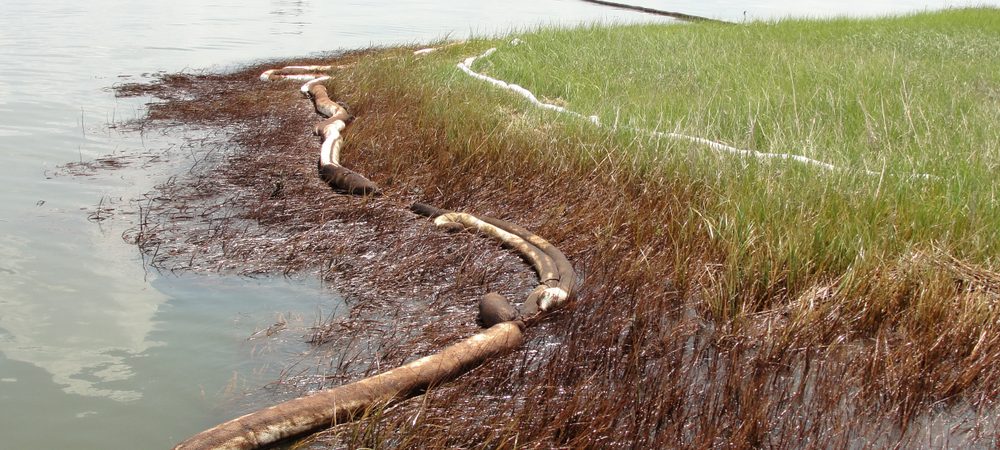Wound Care

This was back in 2010 when I was working as an assistant at Balaskas Bros Wound Care. The sign said Balaskas Bros, but I never met any brothers. As far as I knew there was just Iannis Balaskas, who went by Bob, a Greek immigrant from Athens with pig eyes and a snub nose like a bust of Socrates, who’d posted up in Mobile, Alabama in search of his “slice of the apple pie, with ketchup on top.” While he may have been a bloodthirsty capitalist in his daydreams, in his heart ol’ Bob was one of those ancient Greek soldiers standing arm-in-arm in the phalanx. In boom times the staff got quarterly bonuses, free lunch, and a fifty-minute massage on Fridays. When times were tough, a cloudy bottle of ouzo appeared on Bob’s desk, and he’d gather us in the break room for a weepy ode to sunsets over the Aegean.
I’d hitched up at the wound clinic because I’ve always believed that if you work hard and do good, the world will take care of you. The clinic touched a not-so-deeply-buried savior impulse in me. Laying on of hands and all that. When I was a boy, I’d run away from home to rescue a lamb I’d raised. I’d fed her from a milk bottle, taught her to take the leash. Shelly. Never name a farm animal. We got halfway to Mobile on foot before Daddy caught up. I’d worn three extra pairs of underpants, expecting the whupping of my life. Daddy just smiled this cockeyed grin.
The other issue was, I was dead broke. I’d made the ruinous mistake of majoring in Classics, and now I needed a paycheck. Miss Sallie Mae sounded like a sweet Southern lady when we met, but now she was going to extract her pound of flesh. When I caught my girlfriend cheating on me with a mortgage broker from the Alabama Credit Union, I still had to sleep on the dusty gray futon in her living room. Every night I’d hear them pillow-talking about interest rates and pre-approvals.
As an assistant, my job was to wash down the tables with a disinfecting spray and organize the linen closet. When the patients came in, I’d strip their dressing and set them to soak in the saltwater whirlpool. The patients were diabetics or invalids with bed sores on their backs and legs. Every so often we’d get a gunshot. The wounds were red monstrosities, puffy-lipped mouths. The worst part of the job was disinfecting the saltwater whirlpool, which was really just a bathtub hooked to the tap. We filled it with Eau de La Mer, a plastic packet of crystals with a smiling porpoise on the cover that was supposed to mimic the sea’s healing powers. When you drained it, the sides would be coated with a layer of dead skin. You’d spray it down with Virex, which foamed and bubbled. If you didn’t wash out the Virex good, it might burn the next patient’s skin clear off.
I wasn’t licensed to do therapy work, but Bob gave me some of the hard luck cases, the chronic wounds. “I trust you,” Bob said, in his heavy Greek accent. Probably I was the only staffer who wouldn’t complain. There was the woman who scratched off all her hair. I had to debride the gouges in her scalp. There was one lady named Miss Lydia who had a wound that wept so much pus she’d come in with a maxi pad strapped to her thigh. Venus insufficiency. Gravity pulls the blood to your legs, but your heart’s not strong enough to pump the fluid out. Your heart has to meet the world halfway. I’d smear Vicks VapoRub on my upper lip on account of the smell.
I was hoisting Miss Lydia into the salt tub when Johnny Rotten walked in. We called him Johnny Rotten because of his rotten left heel. It was black with necrotic tissue. Johnny owned a hostel on Mobile Bay, and every day he’d take a swim without changing out his dressing. By the time he came back to the clinic, the wound would be saturated.
“How’s it look?” he asked, as I unwrapped the gauze from his foot.
“Like you care.” I took out my shears. Trimming the dead tissue was like cutting through leather. Mr. Balaskas taught me on an orange. You scissor through the thick peel down to the white pulp without touching the juicy part underneath. If you hit the juice, that’s cutting nerves.
“That’s my heel you’re talking about. Course I care.”
Johnny Rotten had a spade beard like a prince in a painting, and a little girl’s ringlet hair. His row of even teeth were uncanny white, like plastic bottle caps. I never understood how someone who took such care of his face could be so neglectful of his foot. One time I was changing his dressing and his little toe dropped onto the floor like a piece of sock lint. “You want this back?” I held up the toe, black and shriveled as an ancient prune. I was envisioning a scream of body-horror. A shock of ice water awakening Johnny to the existential rot in his bones. “Chuck it in the bin,” he said, not even looking.
“You don’t treat it like it’s yours. You need to stay out of the Bay.”
“What I do on my own time is my own damn business.”
“With my face in your nasty heel, it feels like my business.”
“I pay my fees.”
“You pay jack shit. Medicaid pays your fees.” Mr. Balaskas says it’s not our job to teach the patients personal responsibility. Our job is to debride their wounds, to dress them, and to send them back into the world, where they will again incur horrific injuries. “Good repeat customers,” he’d say, bouncing on his toes. I could take the $7/hour, I could take the whirlpool tub’s lake of dead flesh. What was hard to take was how little any of them cared. There were times when I was cutting out a patient’s rot that I felt like the work was a holy union, my hand deep in their rawest flesh. But then I would look up at Johnny Rotten flipping through his cell phone, and I’d feel embarrassed and ashamed, because I knew I was nothing to any of them, a mechanic servicing a bald tire.
“Not for long. I’m fixing to be so rich Medicaid’s gonna kick me off.” Johnny paused a beat and gave me a sly look.
I sat there silently, working on the heel. I’d lived my whole life with scam artists and hustlers. I knew the sound of a bad idea brewing. If Johnny wanted to pitch me some awful scheme, he was going to have to work for it.
“You been down to the Bay?” Johnny asked, clearly annoyed I didn’t take his bait. I couldn’t help but smile.
“Just seen it on the news.” Two months prior, BP’s Deepwater Horizon rig had dumped five million barrels of crude into the Gulf. Oil had coated the ocean, coated the marine life. Now it was washing up on Alabama’s shores. “News says it’s the worst oil spill in history.”
“Oil spill? I could give a rat’s ass about the oil spill. I’m talking about the cleanup. They’re giving ten thousand bucks a day to every boat that helps out. I look out my window and the whole Bay’s filled with hustlers raking in cash. And here I am playing footsy with you.”
He was getting agitated. Johnny Rotten was one of those types who felt that anyone else’s profit was a personal attack on him. “Hold still,” I said. “You’re jerking your foot.”
“Foot. Always my damn foot. Meanwhile BP’s paying off the whole Gulf Coast. Every fish fry and crab shack is getting rich for ‘lost revenue.’ You know that boy Roe lives at my place? That boy got a check for $75,000 just for showing up to the foreman with a fishing rod and a puppy dog face. It’s true, I seen the check myself.”
“So quit bitching at me and get a boat. Or a fishing rod and a puppy dog.”
“Every damn boat in the whole Gulf Coast is already in the Bay.” He gave me another foxy look. Here it comes, I thought. “You still living on your ex’s couch?”
“It’s a futon. You trying to cut me in?”
“Young buck like you must know someone with a boat lying around. This cleanup could last months. It’s like you said, this oil spill might never go away. We’ll be millionaires.”
We’ll be millionaires. A phrase I’d heard a lot as a boy. Words I knew as a warning. Still there was a part of me, a part that I hated, that felt a kind of mule-kick at these pipedream plans. I’d calculated it out, and at $7 an hour it would take me 4,459 hours at Balaskas Bros to pay off my loans. That was 4,459 tubs of dead skin disinfected. 4,459 pus-filled wounds debrided. 4,459 toes falling off in my hands. What I could do with a couple grand. A girl I knew from Tuscaloosa had moved to New York City. She was a marketing assistant at Ralph Lauren. She spent her days in an air-conditioned cubicle browsing Facebook. I was too deep in my debts to buy a plane ticket, let alone pay a month of New York rent, but as I scraped down Johnny Rotten’s dangling rind of dead flesh and caught a glimmer of raw pink, I could imagine myself at a fancy kitchenette, the crisp cool air settling on my skin, mixing creamer into a cup of coffee.
“You’re thinking about that money,” Johnny Rotten said. “You got a wool-gathering look.”
“So what if I was?” I felt about as foolish as a fish who’s bit a lure. “That doesn’t mean I want to be business partners.”
“We just need a boat, and that money’s ours.”
“Ours?” I said. “If I can get a boat, it’s mine.”
“You can’t just show up. You gotta get a spot, and I know one of the foremen. Anyhow, you won’t do me like that. There’s a kinship between you and me.”
A kinship, I thought, like the kinship between the chicken farmer and the wolf. Johnny Rotten was like my daddy, another angler in the river of daydreams. Before I was born, Daddy bought twenty acres of gray Duckston soil outside the Mobile city limits. Soil so bad even the root rot steered clear. Just wait til the city expands, Daddy said. We’ll be millionaires. He bought a passel of chickens, some sheep, and three black Angus cows. Every day when the cows came in from under the one shade tree, they’d glare at me, like I was responsible for their lot. The house Daddy built had no right angles and you had to duck to get into the kitchen. There was no sewage and we burned our trash in a barrel in the yard. Cities expand, that’s what they do, he said.
But the city never came.
To read the rest of this story, please purchase Issue #20 or subscribe to the print edition.
